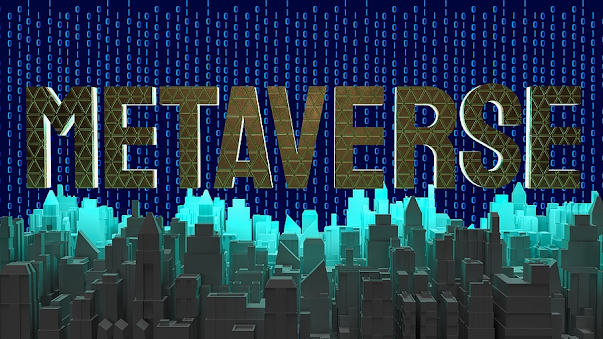A single definition of the Metaverse cannot be made. The concept was first introduced in sci-fi writer Neal Stephenson's 1990s cyberpunk novel Snow Crash. Some experts trace the history of Metaverse platforms back to Second Life, which was launched with huge investments 20 years ago and won the attention of the masses.
Released in 2003, Second Life, described by some as a video game and a virtual living space by others, allowed players to create an avatar for themselves and "have a second life" in the online virtual world. These possibilities were in parallel with the features promised by the metaverse platforms today. Second Life was followed by Robolox in 2006 and Fortnite in 2017. Games of this type, including The Sims series released in 2000, are generally seen as the ancestors of the Metaverse platforms today.
At this point, the question comes to mind: So why are we discussing the Metaverse now? With the invention of the blockchain in 2013, Metaverse entered our lives as a decentralized virtual world, different from its predecessors such as Second Life and The Sims.
Decentralization is part of the Web3 dream, which is essentially defined as a decentralized and personalized version of the internet blended with blockchain technology. We can roughly define decentralized platforms as social environments that are not managed from a single center and provide broader rights to the user. For this reason, Decentraland, The Sandbox, OVR and many other decentralized metaverse platforms have become the focus of gamers and internet users looking for alternatives to platforms under the control of large corporations.
Thanks to Qualified Intellectual Deeds (NFT), avatars and other virtual features created by users in these virtual universes have begun to transform in a way that cannot be deleted, censored, stolen by others (for example, companies that develop the game), and even earn users money. On the other hand, after the blockchain breakthrough and the rise of TikTok, established social media giants, especially Facebook, began to lose power. Losing users and losing revenue for the first time recently, Facebook changed its name to Meta last year in order to "catch up with the times" and became a candidate to become the new owner of the Metaverse world.
Behind this was the firm's founder and CEO, Mark Zuckerberg's investment in virtual reality glasses and augmented reality technologies. Thus, the metaverse has turned from being a concept in which the user only interacts in the virtual world by sitting in front of the computer, to the promise of offering more realistic experiences through virtual reality technologies.
In Zuckerberg's vision of Meta, the user was no longer creating avatars, but was starting to personally experience everything that avatars experience through virtual reality glasses. Thus, the question arose whether the metaverse would be a decentralized utopia that liberates users, or a dystopia, again under the control of big companies like Facebook, where people go around wearing big glasses.
Currently, Meta only has a centralized Metaverse platform called Horizon Worlds.
A centralized dystopia or a decentralized utopia?
At the end of this work, what comes to mind when we say Metaverse is a matter of debate. Will decentralized platforms become more common or will Metaverse remain a new project by Zuckerberg and other tech billionaires?
Istanbul Bilgi University New Media and Communications Assoc. Dr. According to Erkan Saka, the answer to this question will be determined at the end of the hard struggle of blockchain technology enthusiasts and big technology companies. At the same time, the competition among technology companies will be decisive in this.
Speaking to Independent Turkish, Saka said, "Currently, a consortium has been formed between these companies to set the standards on Metaverse. But as far as I know, there is no Apple in it."
In other words, there are no global standards like on the internet. In setting these standards, there will be great conflict not only between cryptographers and technology companies, but also within companies. Maybe there will be such good attacks from the crypto world, such good applications will come out that Big Tech will have to follow them.
At this point, the question of how the metaverse will affect the media environment and journalism comes to mind again. According to experts, there is actually a two-way answer to this question: On the one hand, the metaverse as a decentralized concept, and therefore the blockchain, may have effects, on the other hand, it is necessary to talk about virtual reality technologies, especially highlighted by Zuckerberg.
What will the decentralized Metaverse gain to journalists?
In Turkey and in many parts of the world, there is a media environment where journalists have difficulty in easily publishing what they write, are threatened because of their news, and find it difficult to find a source of income. However, some think that these problems can be overcome by the decentralization, in other words, "depatronization" of the media. At this point, journalists may need to turn to blockchain and thus blockchain-based virtual worlds such as Decentraland or The Sandbox and move their activities there.
Can act as an archive
The first advantage of blockchain to journalists is that no one can delete, change or censor news. Because they are based on a decentralized technology, no power center can rule these platforms.
In this sense, metaverse platforms can also act as an archive for news. For example, the closure of the archive site of the Radikal newspaper recently caused the disappearance of many articles and news, and the deletion of a valuable archive work from the internet. On blockchain platforms, this is not the case. Because in these networks, each participant keeps a copy of all records from the beginning. Therefore, it is not possible for a user to delete the information on the network in such a way that no one can access it.
Maria Bustillos, editor-in-chief of the digital news and alternative culture magazine "Popula.com", in her speech at the 23rd International Symposium on Online Journalism held in April in the US state of Texas, said, "From the first minute I started reading about blockchain technology, it is important. I understood that his direction was record keeping," he said:
So I thought first of all what this technology could do for journalism as an archive system.
Bustillos, who also shared his views on the subject with Independent Turkish, said, "I do not see Metaverse as a single thing or as a concept that has not yet emerged. It seems to me more like the evolution of the current internet with some new features and some not so new ones."
I think the blockchain can also be a huge force in the fight against disinformation, thanks to its ability to generate indestructible ledgers.
It can provide anonymity to the journalist
Also on these platforms, journalists can choose to write with their real identities or remain completely anonymous. Journalists living in totalitarian regimes or receiving threats can feel safer by sharing their articles on such a network. Thus, unlike journalism experiences in Second Life, it may become possible for journalists to remain completely anonymous on decentralized Metaverse platforms.
In addition, NFTs, which are the backbone of blockchain-based Metaverse platforms, can also become an alternative source of income for journalists. For example, virtual land sales spree broke out earlier this year in The Sandbox, Decentraland, and OVR. Although this trend soon faded, it actually meant that many viewed NFTs as investment vehicles. There are already newspapers trying to generate financial income from NFTs and the possibilities of blockchain. But these efforts are taking place outside of Metaverse platforms, at least for now.
For example, the US news agency Associated Press (AP), in collaboration with Xooa, which develops various applications on the blockchain, including Metaverse platforms, transformed the work of photojournalists into NFT and put it up for sale.
Some news sites and social media platforms are also introducing features where journalists can receive donations in cryptocurrency. The first of these examples was "Popula.com". The authors of the site started receiving donations via Ethereum in 2018.
“Our project was wildly successful given that very few people used crypto in 2018,” says Bustillos, the site’s editor-in-chief:
The system we built was pretty primitive, it went really well until the price of ETH made the system outrageously expensive to use. Gas prices (the unit of measure used to calculate the costs required to execute transactions on the Ethereum blockchain) are so high that it can cost an author $6 to send a $1 tip. I look forward to starting this business again one day when we have the money and manpower.
"I'm not sure that it will be a leap"
On the other hand, Assoc. Dr. Erkan Saka states that he is not sure that the blockchain alone will create a big leap in journalism. Saying, "Blockchain has already entered the agenda of journalists when it has just become popular," Saka finds this technology useful, especially in terms of proving who owns the content and the possibilities provided by NFTs.
"This can enable a system of ownership in which the user, the viewer and the reader are actually involved," said Saka, continuing his words as follows:
However, the issue of governance has not been resolved here, either. How much will the ordinary user also have a media outlet on the blockchain, that is, a piece of stake, affect or not affect the content? These discussions continue.
On the other hand, according to Saka, it is doubtful that the blockchain will make a splash on journalism as a result of these discussions. “Most blockchain-centric journalism startups have not done well so far,” the academic said.
In fact, the most famous of them, Civil, was very popular, but it was closed.
Founded in 2016, the bossless journalism startup Civil closed down in 2020, and the team behind the startup joined ConsenSys, a firm that develops new solutions on Ethereum
Journalistic activities on Metaverse
At this point, the question arises of what journalism will or will be like in practice in the Metaverse. In fact, journalism's interaction with virtual worlds has a long history. For example, since the emergence of Second Life, which is seen as the predecessors of the Metaverse, journalists have been trying to operate in these areas as well.











0 Comments